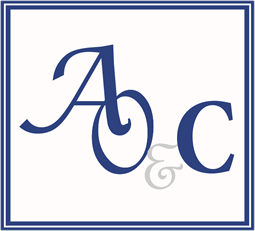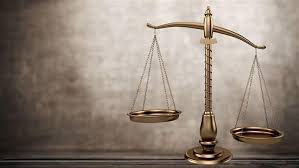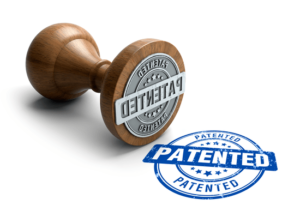I am always surprised to see individuals and businesses who fail to protect their intellectual property rights for it seems they are leaving money on the table and don’t know it. For instance most valuable trademarks owned by some of the world’s largest companies are worth billions of dollars. Take Apple’s brand value which was once reported to be worth $107 billion and Google’s trademark portfolio set to be worth $44.3 billion, if these companies did not protect their intellectual property rights, they wouldn’t be so successful today. Another example is Coca Cola, whose brand value surpassed 100 billion U.S. dollars in 2024, positioning it among the 15 most valuable brands worldwide. The question for the reader is “how much is your brand’s value worth or will be worth, and how do you protect it? To begin, let’s delve into Intellectual Property, its meaning, features and how to protect same.
Intellectual Property
According to the Black’s Law Dictionary (10th Edition), Intellectual Property is a category of intangible rights protecting commercially valuable products of the human intellect. The category comprises primarily trademark, copyright, and patent rights, but also includes trade – secret rights, publicity rights, moral rights, and rights against unfair competition. For the purpose of this article, we will be focusing on the 4 main types of IP including Trademarks, Copyrights and Patents.
A. Trademarks
A trademark is a word, phrase, logo, or other sensory symbol used by a manufacturer or seller to distinguish its products or services from those of others. The main purpose of a Trademark is to designate the source of goods and services. In effect, the trademark is the commercial substitute for one’s signature. A trademark provides protection to the owner of the mark by ensuring the exclusive right to use it to identify goods or services, or to authorize another to use it in return for payment. The Trade Marks Act; Chapter 436; Laws of the Federation of Nigeria 1990 provides for Trademarks and Patents in Nigeria and it is worthy to note that Trademarks have 45 classes.
To register a trademark in Nigeria, one has to make an application to the Industrial Property Office Registry, Commercial Law Department at the Federal Ministry of Trade and Investment.
B. Copyright
Copyright law is designed to protect creators and copyright is in the expression of ideas and not just the idea itself. It is also important to note that photographs and visual arts fall under the artistic creation category of rights protected under copyright.
The copyright Act is the major legislation that protects the rights of original creators and authors in Nigeria.
Section 1 of the act expressly states out the objectives of the Act to include;
- protect the rights of authors to ensure just rewards and recognition for their intellectual efforts;
- provide appropriate limitations and exceptions to guarantee access to creative works;
- facilitate Nigeria’s compliance with obligations arising from relevant international copyright treaties and conventions; and
- enhance the capacity of the Nigerian Copyright Commission for effective regulation, administration, and enforcement of the provisions of this Act.
Section 2(1) of the Copyrights Act lists the categories of works eligible for Copyright in Nigeria. They include;
- literary works ;
- musical works ;
- artistic works ;
- audiovisual works ;
- sound recordings ; and
- broadcasts
Section 10 of the Copyrights act provides that Subject to the exceptions specified in Part II of the Act, copyright in an artistic work shall be the exclusive right to do and authorize the doing of any of the following acts —
- reproduce the work ;
- publish the work ;
- include the work in an audiovisual work ;
- broadcast the work ;
- communicate the work to the public ;
- make the work available to the public by wire or wireless means in such a way that members of the public are able to access the work from a place and at a time individually chosen by them
- make any adaptation of the work and
- do in relation to an adaptation of the work any of the acts specified in relation to the work under subsection (1)(a), (b) and (c).
Section 14(1) (a) & (b) of the Copyright Act provides for the moral right of an artist. The author of a work in which copyright subsists has the right to claim authorship of his work, in particular that his authorship be indicated in connection with any of the acts referred to in sections 9, 10 and11of the Act, except when the work is incidentally or accidentally included in a broadcast when reporting current events. The author of a work also has the right to object and to seek relief in connection with any distortion, mutilation or other modification of, and any other derogatory action in relation to his work.
Section 17 of the act provides that, notwithstanding any assignment or sale of the original work, an author of an artistic work shall have an inalienable right to a share in the proceeds of any sale of that work by public auction or through a dealer, subsequent to the first transfer by the author. The right conferred by this section shall apply only to originals of such work. The condition for the exercise of the right conferred by this section shall be determined by regulations made by the Commission.
The duration for copyright in artistic works is provided in Section 19 of the act. Copyright in artistic works shall subsist until 70 years after the end of the year in which the author dies. In the case of an anonymous artist, copyright shall subsist until 70 years after the year in which the work was first made available to the public with the consent of the author or 70 years after the work was created, if not made available to the public within that time, provided that when the author becomes known, known, the duration of copyright shall be in accordance with the provisions of subsection.
Except as otherwise provided in an agreement, copyright conferred by this Act, shall initially vest in the author]. For the purpose of Chapter 4 of the Constitution of the Federal Republic of Nigeria 1999, copyright shall be deemed to be movable property and shall be transferable by way of assignment, testamentary disposition or operation of law.
Copyright is infringed by any person who without the authorization of the owner of the copyright;
- does or causes any person to do an act, which constitutes a violation of the exclusive rights conferred under this Act;
- imports or causes to be imported into Nigeria any copy of a work which if it had been made in Nigeria would be an infringing copy under this Act;
- sells, offers for sale or hire any work in respect of which copyright is infringed under paragraph (a);
- makes or has in his possession, plates, master tapes, machines, equipment or contrivances used for the sole purpose of making infringing copies of the work;
- permits a place of public entertainment or of business to be used for a public performance of the work, where the performance constitutes an infringement of copyright in the work, unless the person permitting the place to be used was not aware and had no reasonable ground to suspect that the performance constitutes an infringement of the copyright;
- permits within its premises, the reproduction of a copyright work ; or
- performs or causes to be performed for the purposes of trade or business or the promotion of a trade or business, any work in which copyright subsists.
Copyright registration is made to the Nigerian Copyright Commission.
C. Patents
A patent is a legal right granted to an inventor by the government. It allows the inventor exclusive rights, excluding others from making, selling, or using the invention without permission for a specified period. A Patent confers a legal recognition or protection on the outcome of an invention in different areas of human existence. Ideas, research and discoveries that result in novel inventions are worthy of protection and recognition.
The law governing the registration of patents in Nigeria is the Patents and Designs Act and the Commercial Law Department of the Federal Ministry of Industry, Trade and Investment is charged with the grant of Patents and Designs in Nigeria.
It is important to note that an invention is patentable if it is new, results from inventive activity and is capable of industrial application. Furthermore, the right to a patent in respect of an invention is vested in the statutory inventor, that is to say, the person who, whether or not he is the true inventor, is the first to file, or validly to claim a foreign priority for a patent application in respect of the invention.
A Patent expires after 20 years from the date of filing of the relevant application after which the general public may use if freely. A duly registered patent guarantees the Patentee the right to preclude any other person from dubbing his product or reproducing it for economic benefits.
In Nigeria, you can take several steps to safeguard your IP rights. Let’s explore some practical strategies:
- Understand Intellectual Property Rights: Begin by familiarizing yourself with the different types of IP rights available in Nigeria. These include trademarks, patents, copyrights, and industrial designs.
- Conduct IP Audits: Regularly assess your IP assets to identify what needs protection. Evaluate existing trademarks, patents, and copyrights to ensure they align with your business goals.
- File for IP Registration: Register your IP with the relevant authorities in Nigeria. For trademarks, use the Trade Marks Act LFN 1990 to protect and distinguish your trade symbols. Patents and designs should also be registered.
- Use Non-Disclosure Agreements (NDAs): When sharing sensitive information with employees, partners, or collaborators, use NDAs to prevent unauthorized disclosure of your IP.
- Implement Internal Security Measures: Safeguard your IP within your organization. Limit access to confidential information, use secure storage, and educate employees about IP protection.
If you have any questions or remarks regarding copyright protection, do not hesitate to contact us via info@aocsolicitors.com.ng




